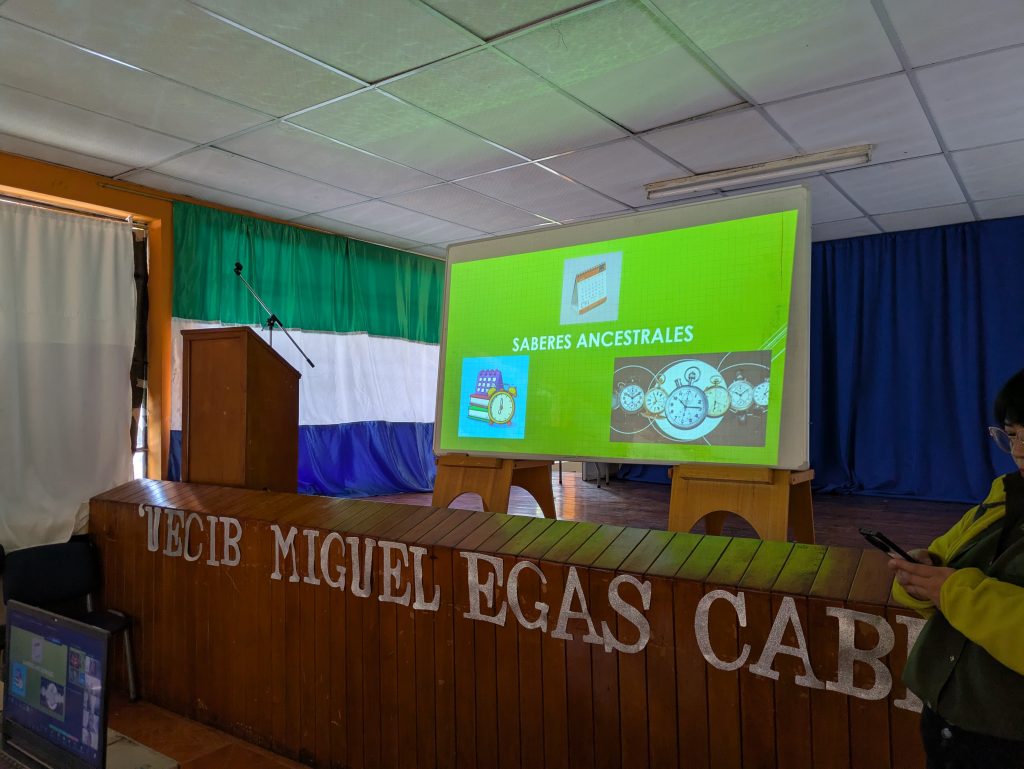On June 24 2025, an inspiring and heartfelt Youth Climate Dialogue (YCD) brought together students from Ecuador and Germany, as part of the global initiative UN CC:Learn. The event was held in parallel to Ecuador’s ongoing efforts to develop its National Strategy for Action for Climate Empowerment (ENACE).
The exchange was made possible through the facilitation of the National Directorate for Pedagogical Improvement of the Ministry of Education of Ecuador, in collaboration with UNICEF. The cross-cultural dialogue, held in Spanish, connected students from the Unidad Educativa Intercultural Bilingüe Miguel Egas Cabezas in Otavalo, Ecuador, and the HeleneLange Gymnasium in Fürth, Germany.

YCD between Ecuador and Germany. Photo credit: Ecuador
The Ecuadorian students addressed pressing topics such as the impact of climate change on the food sovereignty of Indigenous rural communities, the disruption of ecosystems and the loss of sacred natural resources, as well as the importance of ancestral knowledge and practices as a response to climate change. From Germany, students reflected on what climate change means in their local reality, exploring issues such as mobility, quality of life, and adaptation challenges in an urban context.
Over the course of two hours, the dialogue blossomed into a space of mutual learning, empathy, and deep respect. Both groups came prepared and curious, sharing not only what they know, but what they experience — from school gardens in Otavalo, to local climate advocacy initiatives in Fürth. Their words echoed commitment and care for the planet, showing that climate action has many forms, and begins close to home.
The event concluded with closing remarks from Sebastián Concha, National Director for Pedagogical Improvement, who highlighted the importance of these participatory spaces in shaping meaningful and transformative climate education.
After listening to the students, we are left with a sense of hope. Their energy, their thoughtful preparation — nearly a month long — and the joy they expressed at being part of this event were moving. Their connection with nature, climate action, and civic participation shone brightly throughout the dialogue.
This was the first such exchange between the two countries. The Youth Climate Dialogue reminds us that the path to a more just and sustainable future is also paved with conversation, connection, and mutual understanding across borders.
